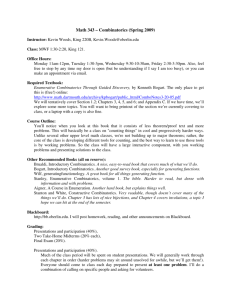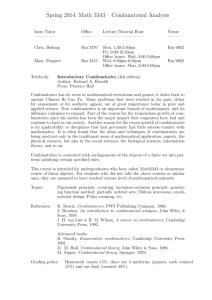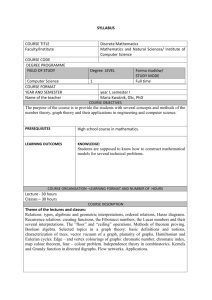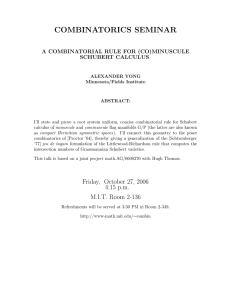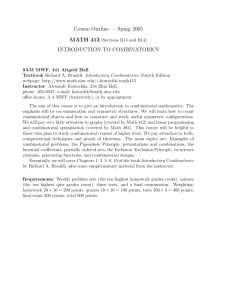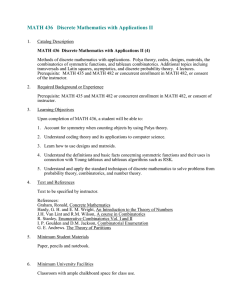MATH 336 Combinatorial Mathematics
advertisement
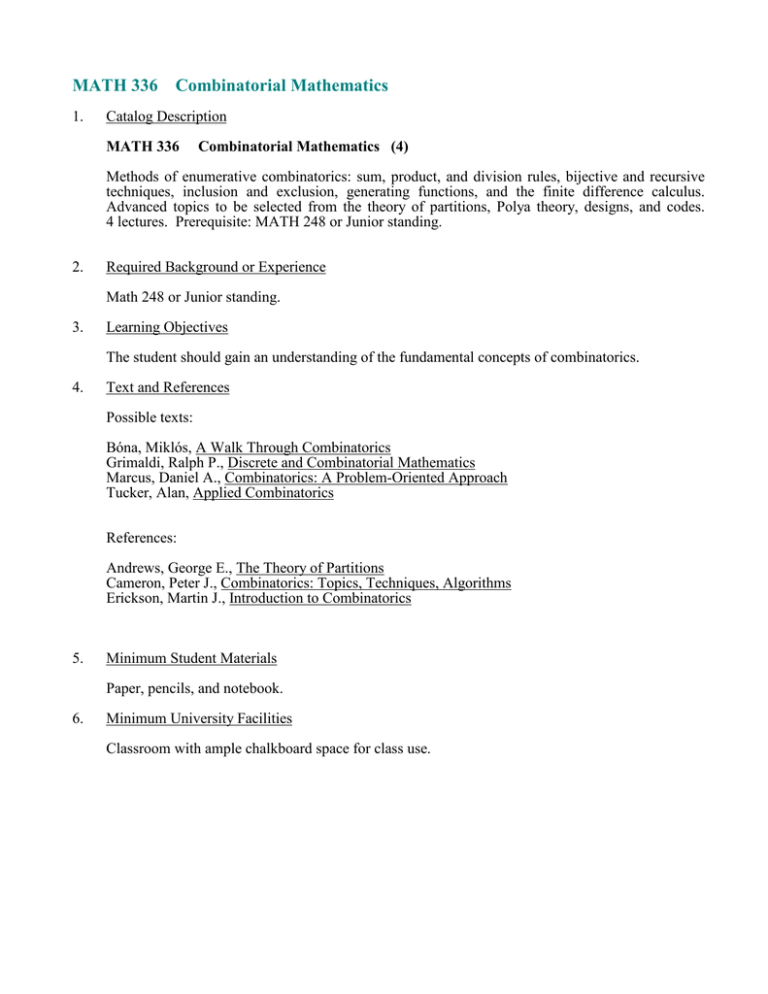
MATH 336 Combinatorial Mathematics 1. Catalog Description MATH 336 Combinatorial Mathematics (4) Methods of enumerative combinatorics: sum, product, and division rules, bijective and recursive techniques, inclusion and exclusion, generating functions, and the finite difference calculus. Advanced topics to be selected from the theory of partitions, Polya theory, designs, and codes. 4 lectures. Prerequisite: MATH 248 or Junior standing. 2. Required Background or Experience Math 248 or Junior standing. 3. Learning Objectives The student should gain an understanding of the fundamental concepts of combinatorics. 4. Text and References Possible texts: Bóna, Miklós, A Walk Through Combinatorics Grimaldi, Ralph P., Discrete and Combinatorial Mathematics Marcus, Daniel A., Combinatorics: A Problem-Oriented Approach Tucker, Alan, Applied Combinatorics References: Andrews, George E., The Theory of Partitions Cameron, Peter J., Combinatorics: Topics, Techniques, Algorithms Erickson, Martin J., Introduction to Combinatorics 5. Minimum Student Materials Paper, pencils, and notebook. 6. Minimum University Facilities Classroom with ample chalkboard space for class use. Math 336, page 2. 7. Content and Method Topic a. Elementary methods of enumeration - sum, product, and division rules applied to counting permutations, combinations, etc b. The principle of inclusion and exclusion c. Recursions d. Classical sequences and counting problems (lattice paths, partitions, Stirling and Catalan numbers, etc.) e. counting by bijections or involutions f. Generating functions, binomial and multinomial theorems, formal manipulation of series g. Advanced topics selected by instructor (time permitting) 8. Methods of Assessment Homework assignments, class demonstrations, quizzes, and examinations. Homework exercises should be engineered to guide learning outside of the classroom (this may include writing small computer programs, reading combinatorics literature, or applying combinatorics to other disciplines).
